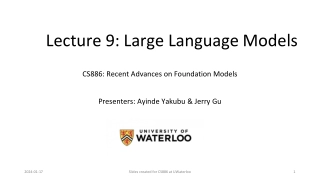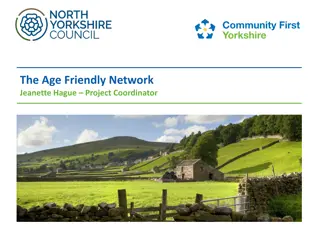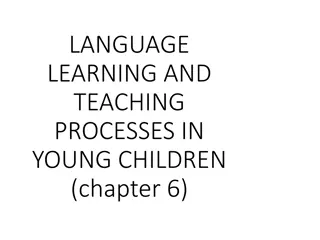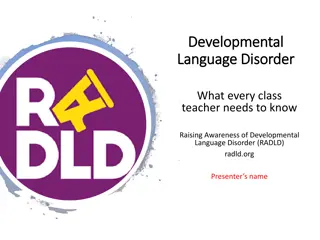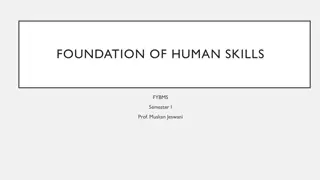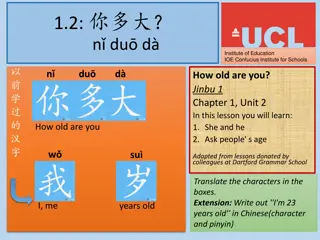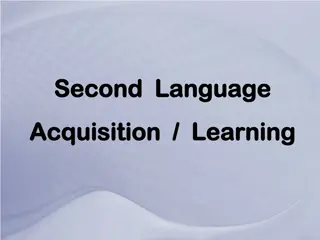Understanding Age-Related Differences in Language Learning
Age plays a crucial role in language teaching and learning, with different age groups demonstrating varying learning needs, competencies, and cognitive skills. Young learners, typically ranging from 6 to 12 years old, have distinct characteristics such as shorter attention spans, a preference for play-based learning, and a tendency to learn through discovery. While older learners may struggle with pronunciation, they often excel in achieving advanced proficiency levels in language acquisition. It is essential for educators to tailor their teaching methods to suit the age group they are instructing.
Download Presentation

Please find below an Image/Link to download the presentation.
The content on the website is provided AS IS for your information and personal use only. It may not be sold, licensed, or shared on other websites without obtaining consent from the author. Download presentation by click this link. If you encounter any issues during the download, it is possible that the publisher has removed the file from their server.
E N D
Presentation Transcript
Does age make a difference? Age plays an important role in what we teach and how we teach it. Learners language learning needs, competences emphasized and the cognitive skills emphasized according to age.
Young learners The term young learners refers to children from the first year of schooling (6 years old, in our case) to 12 years of age. In some cases language teaching may take place at a younger age such as 3 to 6. These children are usually referred to as very young learners . Ers z (2007: 5)
Age as a determining factor in language learning Young learners learn better through play while adults are comfortable with abstract learning and are more analytical. Young learners get bored more easily. Generally, they lose interest after ten minutes or so. Young learners are also more egocentric and need individual attention. However, contrary to the common belief, young learners are not better than olderones in language learning. They may be better in imitating the exact pronunciation of their teachers, but they are generally less successful in learning abstract concepts. Older learners may have difficulty approximating native speakers pronunciation, but they are better at reaching high levels of proficiency in second or foreign language learning.
What are the main characteristics of young learners? 1. Young learners get bored quickly. If the activities are not interesting and engaging enough, young learners get bored easily. This is because they have a limited attention span. Generally, after ten minutes, they can get disinterested in the activity at hand, especially if it is taught directly and is devoid of the elements of play. 2. Young learners are meaning-oriented They may understand what is being said without necessarily understanding every individual word. They may not only guess and interpret what is being uttered but they also respond to it with whatever language resources they have at their disposal. 3. Young learners like to discover things They are characterized by curiosity and enthusiasm. They like to make sense of the world around them through engaging and motivating activities where they have to discover by themselves rather than being told. They also often learn indirectly from everything around them not necessarily focusing on the topic being taught.
4. They prefer concrete activities According to Piaget s cognitive development theory, young learners are still developing. That is, they are still making their way from concrete to abstract thinking. Unlike adults who are more analytical, they are not yet well equipped to learn abstract concepts such as grammar rules. In addition to that, they are more inclined to understand based not only on explanation but more importantly on what they hear, see and touch (Harmer, 2001 p. 82). 5. They are more egocentric They prefer to talk about themselves. Activities that focus on their lives are their cup of tea. In addition to that, children under the age of 12 need individual attention and approval from the teacher. 6. They are imaginative Young learners are imaginative. Activities that are full of imagination is a source of enjoyment for them. It is sometimes difficult for them to distinguish reality from imagination. 7. They imitate They learn by imitating adults. It is amazing how humans imitate and discover things from a very young age. Children acquire communication skills through social interactions. Consequently, because imitation functions as a learning tool, it is rewarding to use it to teach children new skills and knowledge.
Implications for the teacher Activities shouldn t normally take more than ten minutes to complete. Asking children to make an effort to concentrate more than that is counterproductive. They will get bored and disinterested easily. The content should be interesting and motivating. The topics of activities should preferably focus on the students lives. Praising the children s performances is of paramount importance. Since children try to imitate the teacher, the latter should be a good model of language use and social behaviors. The teacher s pronunciation, for instance, matters enormously. Children imitate it perfectly well. Children respond to meaning and are better at picking up the language through listening and speaking. Since children like playing, discovering and using their imagination, the activities that focus on making things, drawing, problem-solving (e.g. riddles), singing, playing games can be very helpful. The classroom should be ideally colorful and spacious enough to be able to move around without any problem. Children should work in groups and the activities should be taking place in stress and anxiety-free atmosphere. https://www.myenglishpages.com/blog/seven-characteristics-of-young-learners/
Do you think learning a language in primary school advantageous? Why?



